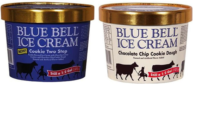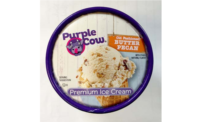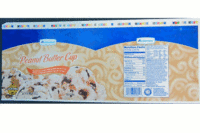On Dec. 23, 2014, we issued a voluntary recall for all of our products, including pints, single-serve cups, wholesale tubs and mix.
Snoqualmie Ice Cream is craft ice cream made in Snohomish, Wash., My wife, Shahnaz, and I own the company. We bought it in 1997 and have grown the distribution from six Larry’s Markets and a handful of restaurants to more than 1,000 grocery and convenience stores, as well as dozens of wholesale foodservice and mix accounts.
We are known for making the richest, most super-premium ice cream in the market because our ice cream pints contain 19% butterfat and less than 15% overrun. This recall was the most devastating and stressful, yet incredibly meaningful, event to ever happen to us.
It all started on Dec. 15, 2014 when the Washington State Department of Agriculture came to the factory for environmental and product testing after two people tested positive for Listeria monocytogenes. Both had consumed our high-protein shake, an exclusive and custom mix that was developed for a Seattle hospital. Both people were hospital patients with pre-existing weakened immune systems that left them extremely vulnerable and at risk for infection. Both patients were immediately treated and had a timely recovery. Thankfully, no other illnesses have been reported.
For the next 30 days, we reconciled well over $1 million in losses, executed a major corrective action plan and successfully completed a root-cause analysis. We hired IEH, a food laboratory and microbiology consultant, to lead the factory reset, determine the root cause, implement new food safety programs and assist with public relations.
Changes to the plant
After a comprehensive review of the production systems and a total reset of the facility, countless updates were initiated. The changes included a new epoxy floor, central sanitizing system, extensive employee retraining, revised HACCP, GMP and SSOP procedures, production zones with designated uniforms, boots, strip curtains and equipment, regular third-party testing for bacteria, hold-test-release program and the elimination of milk crates and wood pallets from the factory.
After 125 swabs of zones 1, 2, 3 and 4 tested 100% negative for Listeria monocytogenes, the FDA conducted their exit interview and concluded there were no remaining concerns.
The WSDA then issued a letter acknowledging the changes and negative test results on Jan. 23, 2015, bringing the recall to an end. The letter stated, “On December 23, 2014, Snoqualmie Gourmet Ice Cream, Inc. issued a voluntary recall of all ice cream mix, gelato, custard and sorbet products produced on or after January 1, 2014 until December 15, 2014. Since then, WSDA has conducted follow up inspection work with the firm. Snoqualmie Gourmet Ice Cream, Inc. has implemented new procedures and conducted additional testing of products that have not detected the Listeria monocytogenesbacteria that originally led to this recall.”
Over 300,000 pounds of ice cream were disposed of and production resumed. All of the new product is held, tested and confirmed safe for consumption. Production started nearly 10 days later than planned because the WSDA did not allow us to purchase milk and cream from our existing dairy supplier. The root-cause analysis determined that the Listeria monocytogenes was brought into the factory on the bottom of the dairy’s milk and cream totes. After an exhaustive search, we found a new milk and cream supplier and resumed production. The first complete month of sales was not until May, due to the three months it took to completely restock all distributors and retailers.
This recall was so hard on us for so many reasons. I could not apologize enough to our customers and consumers for putting them through this. Just the thought that something we made could have killed someone is devastating. I’ve promised to never put our customers, consumers or employees through something like this again. The changes we have implemented are permanent and we strive to always improve anywhere we can.
No more homemade inclusions
Like other major recalls caused by the focus on food integrity, we had to switch focus to food safety above anything else. Unfortunately, we no longer make inclusions or ripples in-house, which was a tough decision, because our homemade cookie dough and fudge brownies were to die for!
Instead, every ingredient is sourced from a producer who can provide a relevant HACCP program and Certificate of Analysis. I refuse to compromise the quality of our products, so it has been extremely difficult to find suppliers who can provide all-natural, GMO-free and great-tasting ingredients while meeting all of our new requirements. Our new food safety program also includes aggressive environmental sampling of zones 1 to 4 and a swabbing of the entire plant twice per year.
Because we did not have recall insurance and voluntarily initiated the recall before the FDA mandated it, Shahnaz and I were responsible for nearly 90% of the loss. We thought we were going to lose our home and our business that took 18 years of our life to build.
I spent most nights without sleep or catching a couple hours in my office, above the plant. The entire team spent Christmas Eve at the office, taking phone calls from customers, consumers and media. The recall was the most stressful crisis a CEO or company could go through.
The stress contributed to major turnover. The majority of the operations staff quit under the mentally and physically exhausting conditions, which resulted in the need to rebuild a new team, from ice cream makers to management and everyone in between. It took us over a year to rebuild the team.
Relationships were everything for the recall recovery. We have had the same banker for over 15 years and have followed her from bank to bank, building a better relationship year after year. This relationship helped Shahnaz secure our first line of credit, which was necessary to survive the crisis.
Shahnaz was responsible for the cash management. Without her, the company wouldn’t have survived the recall. She utilized her close relationships to secure extended terms, ensure receivables were collected and use a line of credit for the first time. For the last year, we have been working with Marler Clark, the leading food safety law firm in the United States, whose help will bring true closure to the recall.
The financial hit and legal issues of the recall are expected to last another 12 to 24 months.
Loyal customers and consumers
The first quarter of 2015 was bittersweet, because it followed the recall and we had a really aggressive production schedule to restock the shelves. The silver lining was in the empathy, understanding and support of our customers and consumers. Nine out of 10 consumer calls to the hotline were to show support and make sure we were okay.
Unlike other recent ice cream recalls, almost every store that carried Snoqualmie Ice Cream kept the shelves empty, awaiting our return and even accepted new items during Spring resets, expanding our presence in most stores. The support from our customers was priceless. Whether they were calling to check in or offering to help clean up, we can confidently say we have the greatest customers in the world.
We have a lot of advice to other manufacturers who may be going through a similar crisis or are proactively trying to avoid one. For manufacturing, I suggest comprehensive employee training, carefully sourcing ingredients from manufacturers with HACCP programs and certificates of analysis for everything, a hold-test-release program for everything produced, an environmental swab testing plan and an excellent recall program.
Fortunately, we followed our existing recall plan, which allowed us to be back in business within a month. Another piece of advice is to only recruit people with the right experience, carefully select an insurance plan and read the policy, keep a cash reserve with enough to get through a crisis, have great relationships with vendors to extend terms and negotiate pricing and have detailed documentation programs in place. In times of crisis, I recommend to get counseling from the start and take it a day at a time. This helped me to emotionally deal with the recall and manage my stress.
Looking ahead, Snoqualmie Ice Cream has a bright future. Exactly one year after the recall, we’ve put together a great team and have installed new equipment, including a Tetra Pak continuous freezer and ingredient feeder, evaporative condenser and new heat exchangers.
Our retail sales decreased in 2015, so we decided to reprioritize and focus solely on the Pacific Northwest in 2016. This allows us to rebuild the brand, reintegrate into the community and support retailers with aggressive trade promotions.
Moving ahead with new flavors
This month, we launched six new frozen custards: Spicy Banana Brownie, Brown Butter Sugar Cookie, Brown Sugar Cookie Dough, Red Raspberry Cake, Blueberry Cardamom Crisp and Crispy Marshmallow Treat. By 2017, we expect to have launched a USDA-certified organic line, which will include pints, wholesale tubs and mix. In addition, we’ll become a B-Corp.
Everything we learned during the recall is relevant. It has shaped the way we do business, make decisions and foster relationships. I hope other manufacturers can learn from our experience and can use this information to be as proactive as possible to prevent a crisis like this.
Food safety must come first. We are proof that you can have an excellent food safety program, while still making the best product around.




